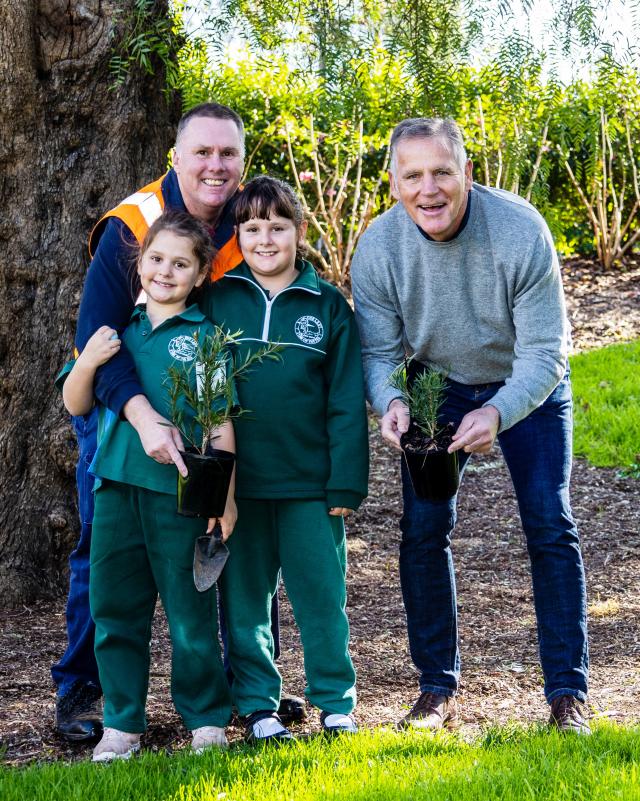A dashboard that allows you to zoom in on any City of Greater Geelong-managed tree to view its species, age, health and size has been launched ahead of National Tree Day,
The City is sharing data on the more than 165,000 trees it manages in its parks, reserves and streets via the new Urban Forest Dashboard.
Mayor Peter Murrihy said the new dashboard was delivered under the Smart City Strategic Framework to improve data-driven decision making and increase our ability to plan, monitor, predict and manage the local environment.
“The Urban Forest Dashboard is a way to share with the community the work we do every day to make Greater Geelong a greener, cooler and more liveable city,” he said.
“Trees cool our streets, absorb carbon, provide habitat and bring beauty to our parks and streets.
“Transparent decision making is important, so we want everyone to be able to access to information about where trees have been planted, their age, species and how they are performing.”
Australia’s largest tree planting and nature care event, National Tree Day, will be held this Sunday July 31. The City is supporting the event with a local planting day at 9.30am on the Ted Wilson Trail at the rear of Haines Reserve, 1A Wilks Street in Manifold Heights.
All members of the community are welcome and encouraged to attend this event.
City Works, Parks and Gardens Chair Anthony Aitken said the trees and vegetation that make up the City’s urban forest are vitally important natural assets for our community and the environment.
“Trees are so important to our community. From the lemon scented gums planted along Brougham Street, to the beautiful Cypress trees you can see across The Bellarine, to the remnant River Red Gums that line the Barwon River,” he said.
“We’re really proud to manage these beautiful trees on behalf of our community and to share our data with other agencies, researchers, policy-makers and citizen-scientists.”
Facts about our Urban Forest
· The City manages 106,670 street trees and 46,459 park trees, as well as trees along rural roadways, reserves, waterways and bike trails.
· The City planted more than 2700 trees in 2020-21 as part of our annual tree planting program over autumn and winter
· Along with the annual planting program we’ve planted more than 500 trees this year in direct response to requests from community members
· Twenty-six of the City’s most common trees have a downloadable fact sheet so you can learn more the Spotted Gum, the Drooping Sheoak or the Chinese Elm.
· The Geelong Botanic Gardens features a Maidenhair Tree (Ginkgo Biloba), one of the Earth’s oldest tree species. The tree is believed to be the largest in Australia has already stated producing roots from its trunk, which doesn’t happen in China until trees are about 600 years old.
· Johnstone Park features a tree propagated from the original Lone Pine (Pinus Brutia), grown on the Gallipoli Peninsula.
For more information visit the Urban Forest Dashboard at www.geelongdataexchange.com.au/pages/urban-forestry/overview#overview









